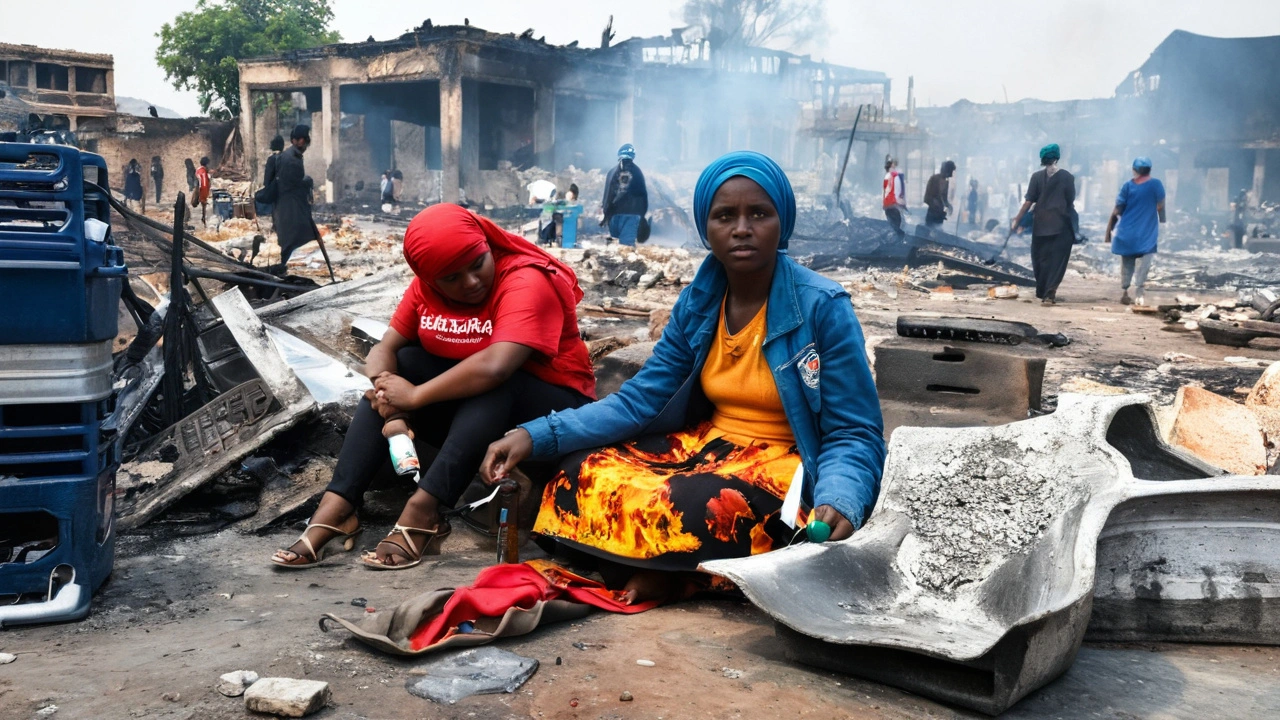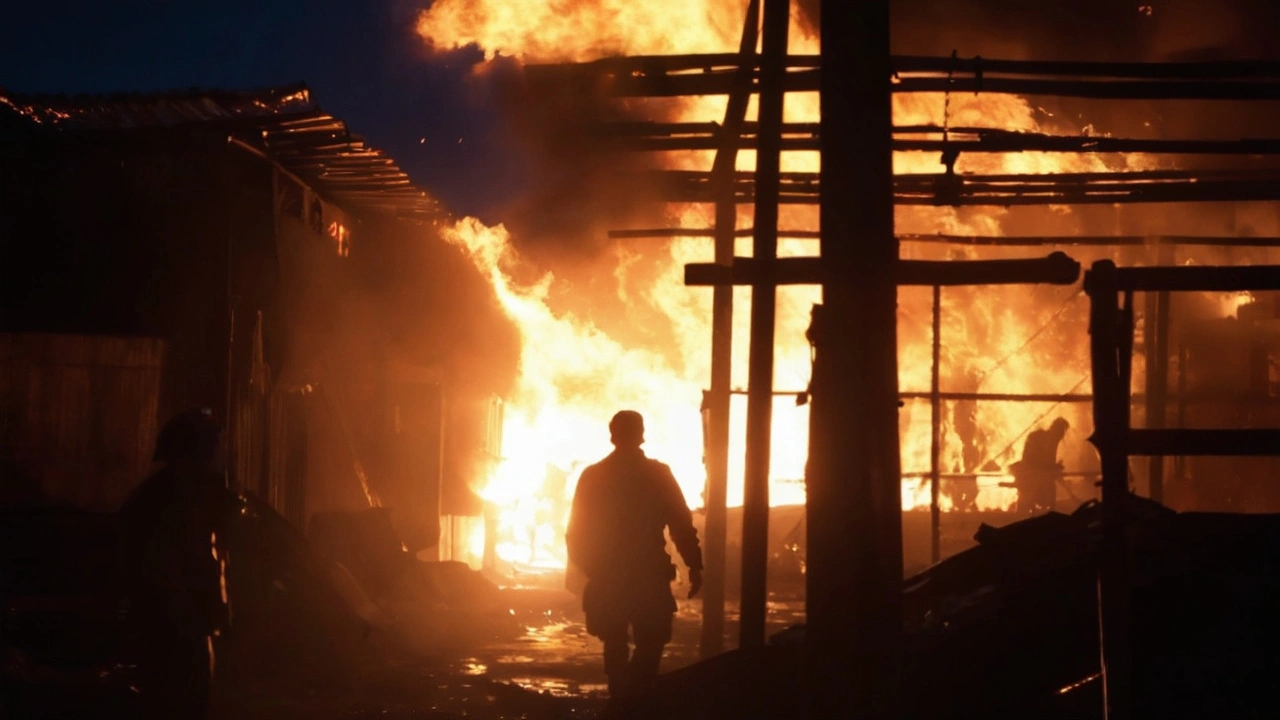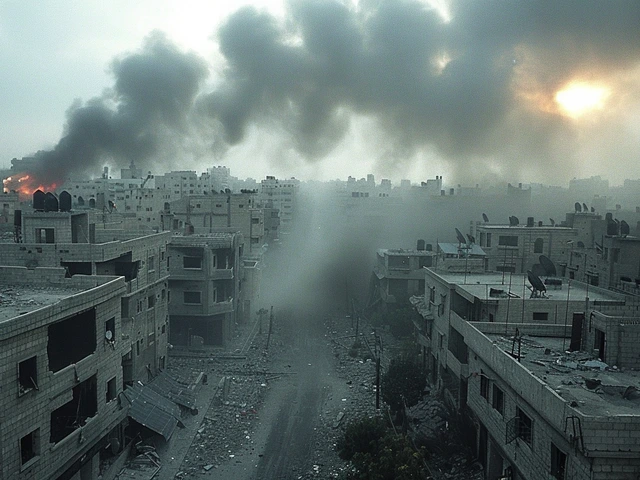
Devastating Blaze at Toi Market Claims Four Lives
The calm of an ordinary day at Toi Market in Kibra was shattered on August 3, 2024, when a catastrophic fire broke out. The inferno, which engulfed the market, resulted in the tragic loss of four lives, one of whom was a young child. These individuals were among the many traders and residents desperately trying to save their hard-earned possessions amid the chaos and destruction caused by the fire. Within hours, thousands of traders sensed their livelihoods turning to ash as their stalls and goods were consumed by the flames.
Anger and Accusations Fly as Traders Feel Abandoned
The aftermath of the fire brought sharp focus on the Nairobi County government's response, or lack thereof, to the disaster. Traders who lost everything voiced their rage and frustration. When Nairobi Governor Johnson Sakaja arrived at the site, he was met with a barrage of stones from incensed traders. It quickly became clear that the traders blamed the local authorities for the time it took to control the fire, accusing them of negligence and failure to provide adequate protection for the market. This palpable tension underscored deep-seated dissatisfaction within the community over unkept promises and perceived inaction following previous incidents.
Firefighters' Delayed Response Intensifies Criticism
Firefighters from the Nairobi County Government, who arrived on the scene hours after the fire was reported, worked feverishly to control and extinguish the blaze. However, for many traders, their efforts came too late. This delay was a key point of contention, as preliminary investigations pointed to an electrical fault as the likely cause of the fire. Many questioned whether a swifter response could have mitigated the damage. The inadequacy of fire control measures at the market had long been a simmering issue, now brought to the forefront by this tragedy.
Recurring Nightmares: Echoes of a Previous Fire
This was not the first time Toi Market faced such a catastrophe. In June 2023, a fire similar in scale and destruction ravaged the market. At that time, promises were made by Governor Sakaja and other officials to rebuild and secure the area to prevent future incidents. However, the recurrence of such a tragic event illuminated the gap between political promises and tangible action. Traders, grappling with a sense of déjà vu, saw this fire as a stark reminder of their continued vulnerability and the government's failure to effectively address their plight.
Political and Community Reactions
The political ramifications of the fire were swift. Besides Governor Sakaja, other political figures, including Kibera Member of Parliament Peter Orero and Embakasi East MP Babu Owino, made their way to the scene. Their engagements with the community ranged from expressions of sympathy to promises of support. However, the overarching sentiment remained one of skepticism and anger. The presence of these leaders did little to quell the fury of the traders, many of whom had little faith in yet more promises amid repeated disappointments.

Governor Sakaja's Precarious Position
Governor Sakaja’s encounter with the angry traders highlighted his precarious position. Pelted with stones and met with hostility, it was evident that his administration's handling of market safety and disaster response was under intense scrutiny. The situation escalated to the point where the security detail accompanying Sakaja had to discharge their firearms into the air to disperse the crowd. This response, while effective in providing immediate security, did little to ease the underlying tensions and concerns of the community.
Call for Comprehensive Reforms
The fire at Toi Market has ignited calls for comprehensive reforms in market infrastructure and emergency response protocols. Community leaders and activists are pressing for better safety standards, more effective emergency services, and greater accountability from the government. There is a growing consensus that piecemeal measures are no longer sufficient, and a more holistic approach is necessary to protect lives and livelihoods. The tragic loss of four lives serves as a painful reminder of the high stakes involved and the urgent need for change.
Future of Toi Market and Policy Implications
Looking ahead, the future of Toi Market hangs in a delicate balance. The pressure on Governor Sakaja and his administration to follow through on their commitments has never been greater. The recurring fires have stripped away the community's patience, leaving little room for further delays or excuses. Effective and immediate intervention is required to rebuild trust and ensure the safety of the market. This incident also highlights broader policy implications for market safety across Nairobi and beyond, potentially serving as a catalyst for widespread regulatory reforms.
Ensuring Safety and Livelihoods
For the traders of Toi Market, the path to recovery will be long and fraught with challenges. Rebuilding their stalls and replenishing their goods are immediate concerns, but the shadow of insecurity hangs heavy. Ensuring their safety and livelihoods will require concerted efforts from the government, coupled with robust community engagement. The incident has underscored the critical need for reliable infrastructure, swift emergency responses, and a transparent, accountable government to guard against such devastating events in the future.
A Community's Resilience
Despite the immense loss and ongoing challenges, the resilience of the Toi Market community shines through. In the face of adversity, the traders and residents have shown remarkable strength, uniting to support one another and rebuild from the ashes. Their resilience serves as a powerful testament to the human spirit and a rallying cry for all stakeholders to take urgent, decisive action to prevent such tragedies from recurring. The lessons from Toi Market must not be ignored, and the community's voice must lead the way towards a safer, more secure future.





